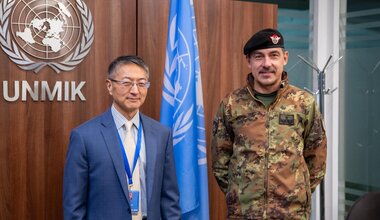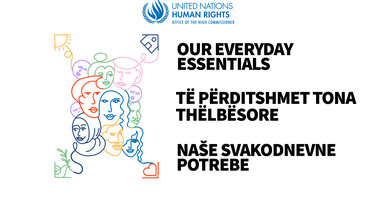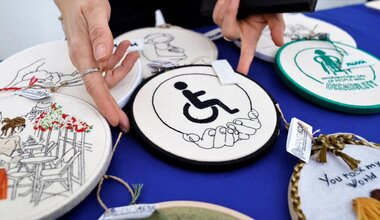UNMIK YOUTH ADVISOR AND KOSOVO YOUNG PEACEBUILDERS BRIEF SECURITY COUNCIL
UNMIK was one of the three UN missions presenting their best practices at the United Nations Security Council Arria formula* meeting on "Implementation of the Youth, Peace, and Security agenda by UN Peace Operations" held on 9 September.
During the meeting, UNMIK Youth Advisor Iana Minochkina briefed the Council about how the mission localised the UN's Youth, Peace and Security (YPS) agenda through a representative Kosovo-wide youth consultation process and adoption of the "Kosovo Roadmap on YPS". She also highlighted the following key factors contributing to the successful implementation of the mission's YPS Programme under the leadership of the Special Representative of the Secretary-General and Head of the Mission Zahir Tanin:
- Adoption and mainstreaming of YPS strategy across Mission components;
- Working with youth as partners and launching a multi-ethnic network of young Kosovo peacebuilders;
- Dedicated support to youth-led peace initiatives;
- Networking and partnership through the informal network of Youth Advisers working in Somalia, Iraq and Colombia, as well as cooperation with the UN Kosovo Team, the Peacebuilding Support Office and the UN Youth Envoy.
“All efforts to advance peace and security in Kosovo should involve empowerment and effective participation of young people in inter-ethnic trust-building, local governance and economic development,” Minochkina told the Council.
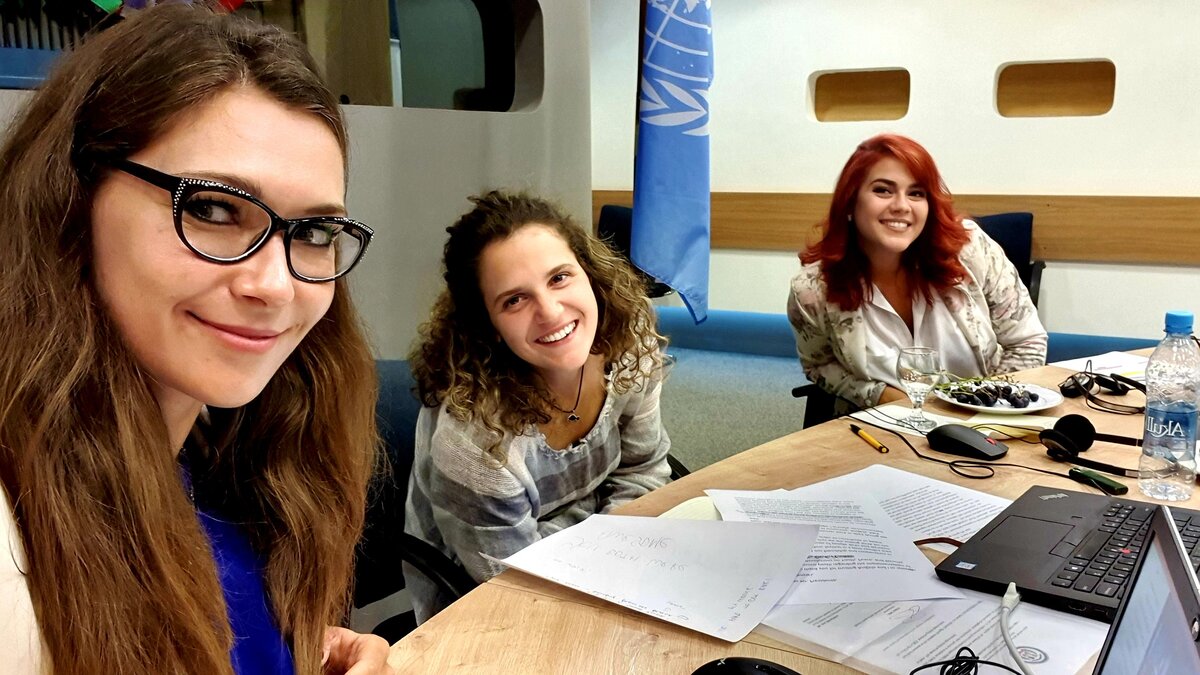
Youth: the present and the future of Kosovo
Two young peacebuilders from Kosovo also briefed the Council for the first time about the role of youth in building more peaceful and resilient communities.
Andjela Mirković and Diellza Geci, who come from two different communities and became friends at university, won a small grant at the 2nd UN Youth Assembly in Kosovo in 2018 for their project idea about a youth festival on cultural diversity. An annual event, Kosovo Youth Fest now brings together over 200 youth from all Kosovo communities to celebrate traditional food, music, dance, and games.
“The friendship and cooperation between me and Andjela in organizing a multiethnic festival in a post-conflict area where trust amongst groups of people is lacking and divisions loom large, is an example that we are setting for the rest of Kosovo youth to contribute to peacebuilding processes,” Geci told the Council.
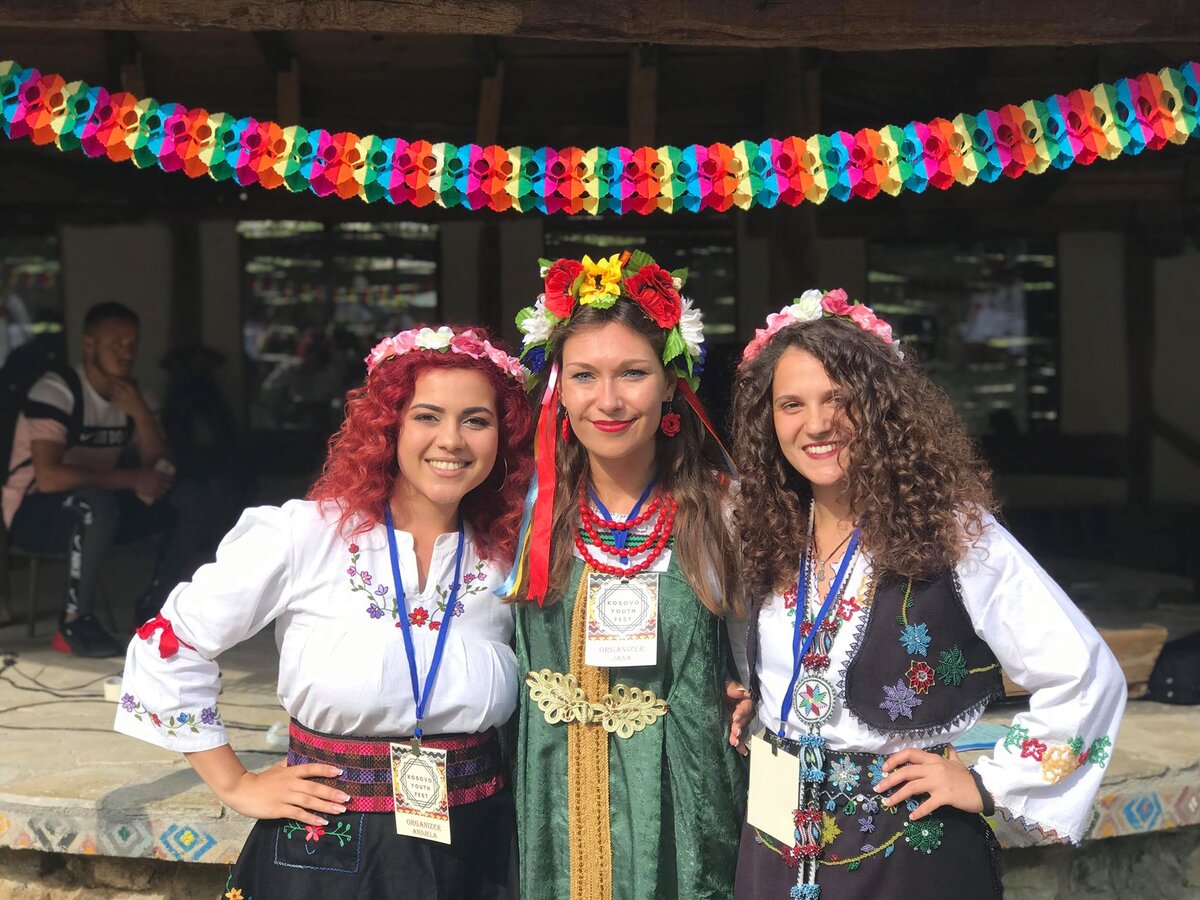
Iana Minochkina, Andjela Mirković and Diellza Geci at Kosovo Youth Fest in 2019
Mirković, a member of the UNMIK-supported network of young peacebuilders "United Youth Task Force," also shared her experience of organizing multi-ethnic municipal youth focus groups and activities to empower young women from marginalised communities.
“We as the present and the future should not be marginalized and put aside, but rather serve as a bridge that connects decision-makers with youth. Kosovo is a land shared by many communities, in which we do not share only the same past, but also the same future,” Mirković said.
Personal contacts, uncomfortable questions, critical thinking, mutual respect and the will to address shared challenges are key drivers to challenge ethnic divisions, Mirković and Geci told the Council.
The meeting was organized by the Dominican Republic, France, and several other Member States to follow up on the implementation of the YPS resolutions across UN peace operations.
The Arria formula meeting aimed to share lessons learned and best practices about implementing YPS resolutions and discuss how the Council and the UN system can best support the implementation of these resolutions.
Rosemary DiCarlo, Under-Secretary-General for Political and Peacebuilding Affairs, Jean-Pierre Lacroix, Under-Secretary-General for Peace Operations, João Scarpelini, former UN Youth Advisor in Somalia, and Mauricio Artiñano from the United Nations Verification Mission in Colombia also briefed the Council during this meeting.
*Arria formula meetings are informal gatherings which enable Security Council members to have a frank exchange of views, within a flexible procedural framework.
 UN
UN United Nations Peacekeeping
United Nations Peacekeeping


